There are a few reasons why we count the Omer. One is that after leaving behind centuries of knowing only slavery in Egypt, we needed time to adapt to freedom. We needed these seven weeks to make a gradual transition and be prepared mentally, physically and spiritually to accept the covenant.
A lot can happen in seven weeks. (As it happens, it has been seven weeks since the stay-at-home order was enacted in California.) We have committed to pursue transformation, to embrace complete freedom, to improve ourselves through the Omer. But at four weeks – halfway – have we accomplished much? What are we working toward? This is that moment on a steep hike when we pause to take in the view and examine the path completed, hoping that it appears long enough to justify how tired we feel. Just in time, we consider netzach, endurance, this week.
Netzach implies two Hebrew words: nitzachon – victory over our fears and nitzchiut – eternity. Kabbalah, the mystical interpretation of Jewish tradition, reveals that the connection between these two concepts is tenacity. If we want to overcome weak spots in ourselves, we must persist. If we want to live lives that have eternal meaning, we must do so by continuing, because we are part of something greater than ourselves. We persevere sometimes even by the act of telling ourselves we will endure and calling to mind past ways we’ve overcome challenges as well as the example of generations before us who have triumphed over drastic change and loss.
Beyond the metamorphosis from enslavement to freedom, the Omer is all about transitions. We distinguish when we move from one day to the next. Focusing on character traits for the sake of our growth. But navigating change too quickly doesn’t deliver results. We thrive most when we give ourselves time to work with ourselves and persevere through transitions.
Having time between life’s phases allows us to look back at what we experienced, to be present and mindfully pursue what’s next. The act of reflecting on our hike so far is enough to push us toward the top. It wasn’t enough for the Israelites to flee captivity in Egypt. Inner work and reflection were needed to fully achieve that freedom before receiving the Torah. If they had received it immediately, while vulnerable and knowing nothing but life in servitude, it would have been overwhelming and too much too fast.
When our lives started changing because of the novel coronavirus, we had to adapt too quickly with little information. We have now passed a lot of the traumatic chaos that came with learning about the virus, accommodating shifts in daily life, and the substantial loss of life and well-being. Even after enduring so much, this might be the hardest point. We’re tired and drained, but we still have quite a journey ahead before we can see to the finish line.
And yet this period of transition, when it might feel like we have not grown much, is exactly the point to look back at the distance we have covered. Counting even the smallest victories will energize and steel us for the difficult, long-term work we see, and can’t see, ahead.
Possible actions and reflections this week:
- Consider an experience when you persisted through a transition over a long period of time and another when you had to adapt quickly. What differences do you note in retrospect? What tools helped you in each situation?
- Write a message or send a token gift to someone who inspires you to continue in your hardest times.
- What is a skill or hobby you have wanted to pursue but never have? Perhaps now is not the time to pick it up (maybe it is!), but think about the steps you would take to slowly and surely work toward it.
- Listen to this playlist of songs about endurance and suggest your own.
Today is twenty-five days, which is three weeks and four days of the Omer.
Written by
Chaya Gilboa, Director of Jewish Engagement
Jessica Kort, Director of Communications and Strategy


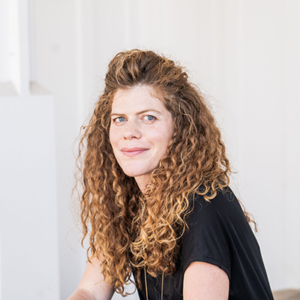
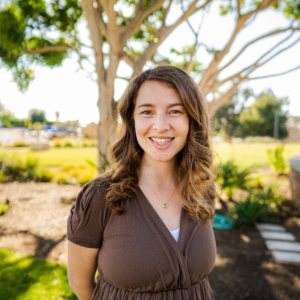



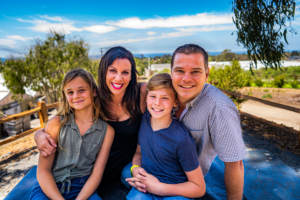
 Stacie and Jeff Cook understand commitment. They live it.
Stacie and Jeff Cook understand commitment. They live it. Black, Jewish and Queer. These three identities weave the fabric of who I am, but it took a long time to believe that they could exist together.
Black, Jewish and Queer. These three identities weave the fabric of who I am, but it took a long time to believe that they could exist together.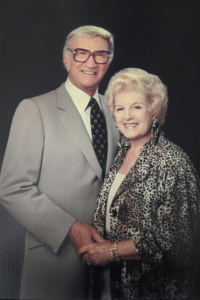 Lee and Toni Leichtag established the Leichtag Foundation in 1991 following the sale of their business. Lee and Toni were lifelong entrepreneurs with a passion for innovation and for supporting talent. They believed that only with big risk comes big reward. Both born to families in poverty, Toni to a single mother, they strongly believed in helping those most in need and most vulnerable in our community. While they supported many causes, their strongest support was for young children and the elderly, two demographics who particularly lack voice in our society.
Lee and Toni Leichtag established the Leichtag Foundation in 1991 following the sale of their business. Lee and Toni were lifelong entrepreneurs with a passion for innovation and for supporting talent. They believed that only with big risk comes big reward. Both born to families in poverty, Toni to a single mother, they strongly believed in helping those most in need and most vulnerable in our community. While they supported many causes, their strongest support was for young children and the elderly, two demographics who particularly lack voice in our society. Lifelong Baltimoreans, Rabbi George and Alison Wielechowski and their sons, 11-year-old Lennon and 9-year-old Gideon, are more than pursuing the good life in Southern California. Having moved to San Diego more than three years ago, they are fulfilling a lifelong dream.
Lifelong Baltimoreans, Rabbi George and Alison Wielechowski and their sons, 11-year-old Lennon and 9-year-old Gideon, are more than pursuing the good life in Southern California. Having moved to San Diego more than three years ago, they are fulfilling a lifelong dream.

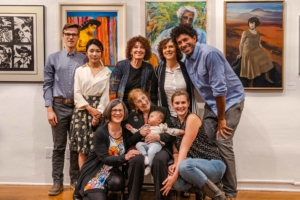

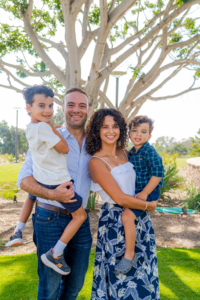

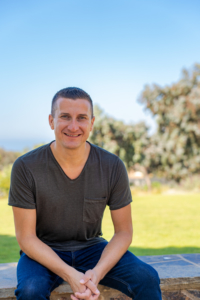 You would think that as the executive director of San Diego LGBT Pride, Fernando Zweifach López Jr., who uses the pronoun they, has done all the coming out they possibly can. A queer, non-binary individual who has worked for many years on civil rights issues, López also speaks openly and often about their father’s family, Mexican-American migrant workers who tilled the fields of rural California.
You would think that as the executive director of San Diego LGBT Pride, Fernando Zweifach López Jr., who uses the pronoun they, has done all the coming out they possibly can. A queer, non-binary individual who has worked for many years on civil rights issues, López also speaks openly and often about their father’s family, Mexican-American migrant workers who tilled the fields of rural California.